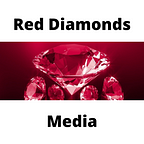Why and How Greater Humanity in Organizations Equals More Goal Achievement
Intangible success often creates tangible value yet it’s not simple to recognize and appreciate. Within organizations, that can lead to gaps, costs and deficits.
Any organization and any business is about people. If the people don’t get relationship quality right with each other and those with whom they serve, there are going to be unwanted, unnecessary, problematic costs.
“Emotional intelligence does not get quite the respect it should in the workplace. Mainly because it’s hard to quantify E.I. and the R.O.I. that it provides,” says Luke Smith, a real estate business professional and founder of We Buy Property in Kentucky.
That doesn’t mean it there isn’t a need for it and that it doesn’t prove beneficial.
“However, when employees have this, it can provide an invaluable asset to the organization,” Smith says, adding “It helps in sales, management and negotiations with vendors. When you use E.I. to actively listen to the other party and help solve their problems, you’ll eventually get what you want. This is a skill that needs more emphasis in the modern world.”
He is of the belief that it doesn’t just benefit the organization inside an organization but outside its walls too.
“Those that possess it are usually well paid, sought after individuals as they provide value inside and outside for the business.”
Disputes might not be present in all organizations yet they are in most. Ongoing conflicts are more common than uncommon and scandals and crises, internal or external to the organization, while rare, are possible and happen more often than they should.
The components that make up emotional intelligence therefore can act as protective qualities for organizations, all their people and other stakeholders.
“Emotional intelligence can help mitigate or potentially alleviate ongoing conflict inside and outside of an organization. Individuals with high E.I. are able to get to the route of a dispute to understand what both parties’ intrinsic and extrinsic motivators are in order to provide a sound resolution,” Smith says.
The more intense the negativity and deeper the trouble, the more understanding, expertise and skills that are required to navigate risk and the potential or emerging costs.
“Scandals or crises typically result from an angered or disgruntled individual,” Smith says. “An employee with high E.I. will avoid angering others because they behave and conduct themselves in a decent manner to remedy a feud or crisis before it gets out of hand. People with E.I. are able to understand what each party needs and wants and better provide options or solutions to move forward.”
Even when self awareness, social awareness, empathy, emotional regulation, motivation and relationship management sound like a good idea and a smart path to commit to and pursue, the ‘how’ can be puzzling to leaders or any individual who might to be a catalyst for it in an organization.
“Creating emotional intelligence in a business is done by creating a culture of accountability and integrity. You certainly can train your employees and discuss E.I. with them. Outside of directly discussing it, you can build a culture of value by holding employees accountable for their actions to ensure they follow the golden rule — treat others as you would like to be treated — and behave with integrity,” Smith says.
A common belief is that the more an organization consistently practices humanity towards its people, the more it models the standard and expectation for how to interact with other people.
This then, the theory goes, results in employees learning the psychology and compassion to achieve it, leading to them conducting their interactions in the same way, not only within the organization but outside of it with all people with whom the organization interacts.
“You can also implement standard procedures that ensure customers receive great treatment and service, along with all other stakeholders or vendors of the business,” Smith says.
Commitment, skills and excellence within human interactions earn rewards in most relationships. People that consistently, reliably observe, notice and identify their emotions (high self awareness), regulate their negative emotions, consistently seek to understand how other people are feeling, are moved to practice empathy and compassion, show motivation to create an emotionally healthy culture and are committed to healthy relationships throughout the organization are going to benefit greatly.
They are going to earn trust, a quality reputation, influence, added persuasiveness, increased loyalty and therefore, be able to lead in a stronger way and influence the culture.
“Organizations and leaders build an outstanding reputation for themselves and their organization when they succeed at hiring and-or educating employees to think, develop and use emotional intelligence,” Smith says.
“These organizations thrive in their market place and sometimes explode beyond belief,” he contends. “Couple a good service with quality individual employees and a decent product and you have all the makings for success.”
The R.O.I. will be evident. One just has to look for and recognize it.
Michael Toebe is a reputation and crisis analyst and practitioner, serving individuals and organizations. He serves as a researcher, analyst, consultant, advisor, coach and communications provider and has provided analysis and advisory for online publications Chief Executive, Corporate Board Member, Corporate Compliance Insights, New York Law Journal and Training Industry and regularly publishes at Red Diamonds Essays and Reputation Specialist Essays (both on the Medium platform) and LinkedIn.
(Image in article courtesy of Pixabay)
